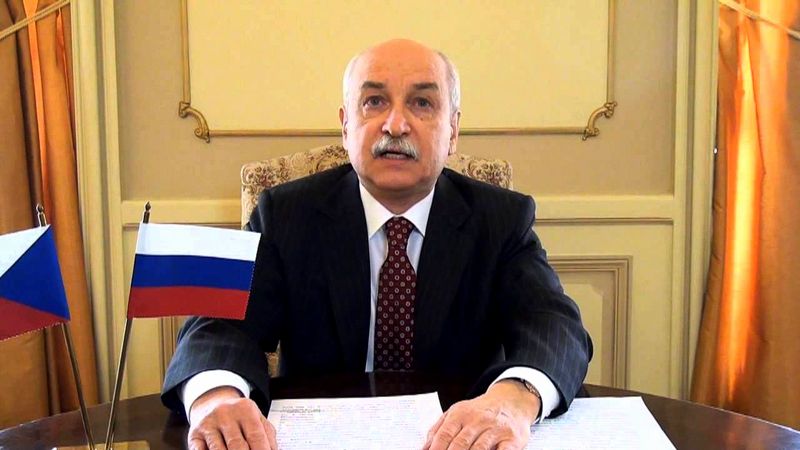Czech foreign affairs minister summons H.E. Sergei Kiselev to explain blacklist, controversial 1968 documentary
Czech Foreign Affairs Minister Lubomír Zaorálek has summoned Russian Ambassador Sergei Kiselev this afternoon to explain the list of the European Union countries’ officials, including four Czechs, whom Russia has barred from entry, the ministry’s spokeswoman Michaela Lagronová has told the Czech News Agency.
Zaorálek (Social Democrats, ČSSD) also wants Kiselev to explain a Russian documentary on the Soviet-led invasion of Czechoslovakia in 1968, which crushed the then–Prague Spring communist reform movement, Lagronová said.
Experts say the documentary distorts history.
She said Zaorálek is indignant at the documentary, which the Rossia 1 state television recently broadcast.
Moscow’s list of 89 diplomats and politicians from the EU who have been banned from entry includes former Czech Foreign Affairs Minister Karel Schwarzenberg, deputy Marek Ženíšek (both TOP 09), MEP Jaromír Štětina and former Czech EU commissioner Štefan Füle.
Czech Prime Minister Bohuslav Sobotka (ČSSD) has said the blacklist is Moscow’s reaction to the sanctions the EU has imposed against Russia over its approach to Ukraine.
The documentary on “the declassified aspects” of the Warsaw Pact’s history presents the grouping as one that defended the Soviet Union’s allies against an “aggressive” NATO.
In this spirit, the film advocates the Warsaw Pact’s invasion of Czechoslovakia in August 1968 as a “really serious test of the Warsaw Pact’s united armed forces.”
Historians say the documentary marks a return to the former Soviet Union’s propaganda.
The documentary has been condemned by the Slovak Foreign Ministry.
“The broadcasting of the documentary, which tries to rewrite history and distort the historical truth about the dark chapter of our history, harms the declared good Slovak-Russian relationship. … We insist on the need to respect the truth about the events of 1968, which meant a big and long-lasting tragedy for Czechoslovakia and its citizens,” the Slovak ministry said in a statement.






